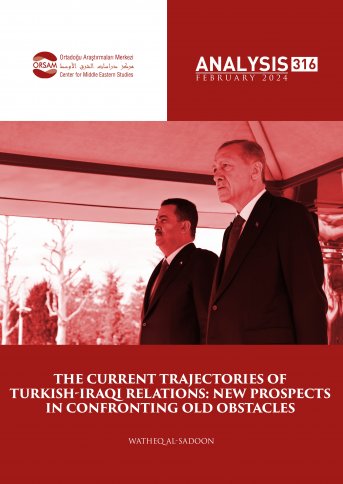
Türkiye and Somalia: A New Cooperation Approach from Regional Security to Economic Development
Türkiye's policy towards Somalia specifically, and Africa and the Red Sea region in general, historically has had strong ties with the countries of the region. However, the process of relations during the early Republic era was fraught with numerous opportunities and challenges. This is also true for the "Defence and Economic Cooperation Framework Agreement" approved last month by the Somali Cabinet. As a NATO member, the Republic of Türkiye, especially since 1991, and more intensively with President Recep Tayyip Erdoğan's visit to Mogadishu in 2011 along with his family during his prime ministership, deepened its relations with Somalia in diplomatic, security, economic, and socio-cultural fields. The process of deepening relations between the two countries in various fields continues within the areas requested by Somalia and within the capabilities of Türkiye, as demonstrated by this framework agreement.
In this context, the "Defence and Economic Cooperation Framework Agreement" signed between Türkiye and Somalia hold strategic importance both for the two countries involved and for regional stability. This 10-year agreement aims to expand cooperation, especially in the fields of maritime security, military training, and economic collaboration. The agreement grants Türkiye the authority to supervise maritime security operations in Somali territorial waters. Türkiye aims to support the reconstruction of the Somali Navy, combat illegal fishing within Somalia's Exclusive Economic Zone (EEZ), enhance Somalia's capacity to fight against illegal and unregulated activities, and use the economic resources derived from the Somali EEZ for the development of the Somali Navy. Thus, this agreement has the potential to contribute both to the development of bilateral relations and to the security of a strategically located region crucial for the stability of international trade.
However, considering that this agreement is a framework agreement, a more comprehensive analysis of the benefits for both countries or its contribution to regional stability will be possible with the public presentation of the sub-agreements in the coming period. Therefore, the main objective of this study is to identify the turning points in the relations between the two countries within the framework of the said agreement and to analyse its contribution to regional stability.
This cooperation marks a turning point in relations between the two countries in terms of significantly strengthening the Somali government's efforts to maintain its sovereignty. In Somalia, where economic and political issues are prevalent, Türkiye's support in the fight against the security problems posed by the terrorist organization Al-Shabaab has been prominent. Thus, another important aspect of the agreement is Türkiye's responsibility to ensure maritime security in Somali waters and to protect the region. In this respect, the agreement can also be considered a concrete example of Türkiye's efforts to expand its international collaborations in military training, security, and defence industry areas. Therefore, the agreement is an important step that will contribute to regional and global security dynamics and further strengthen the strategic partnership between Türkiye and Somalia.
From this point, the study first examines the relations between the two countries from 2011 to the said agreement. Then, it analyses the opportunities and challenges for Türkiye, Somalia, and the maintenance of regional stability, as well as the regional and global implications, and presents policy recommendations






